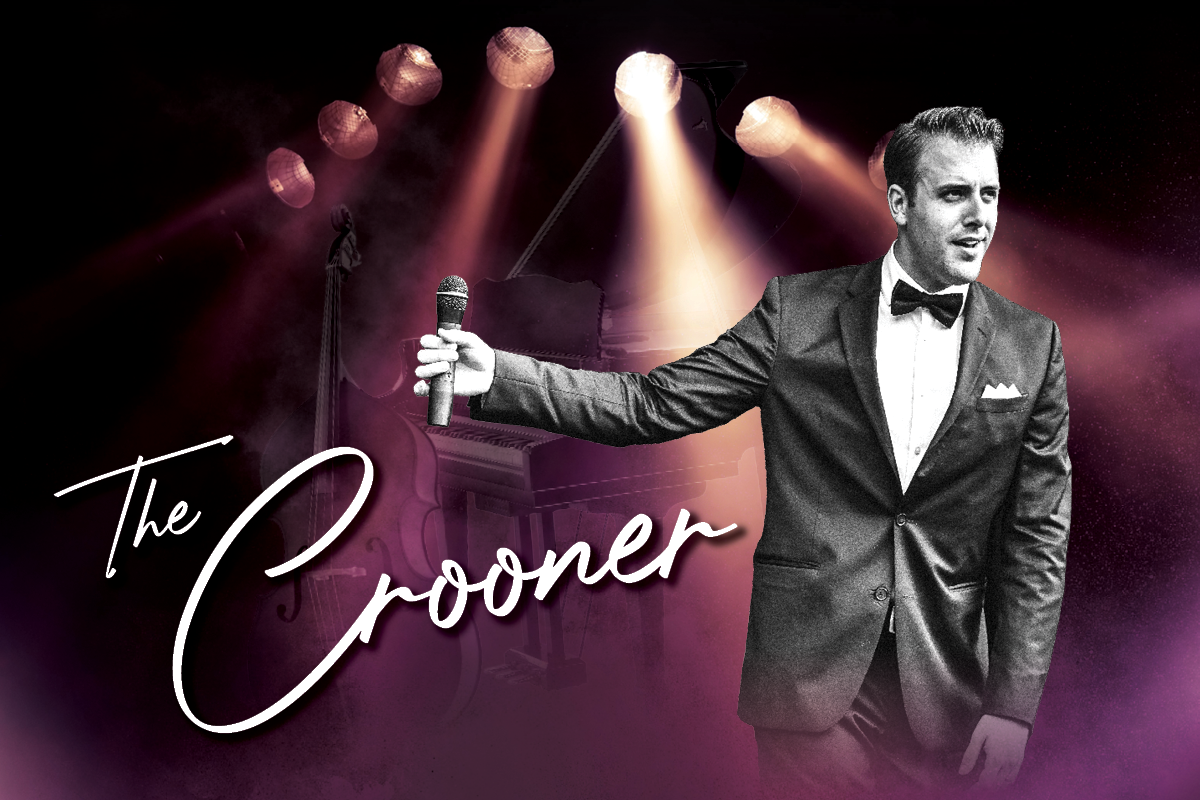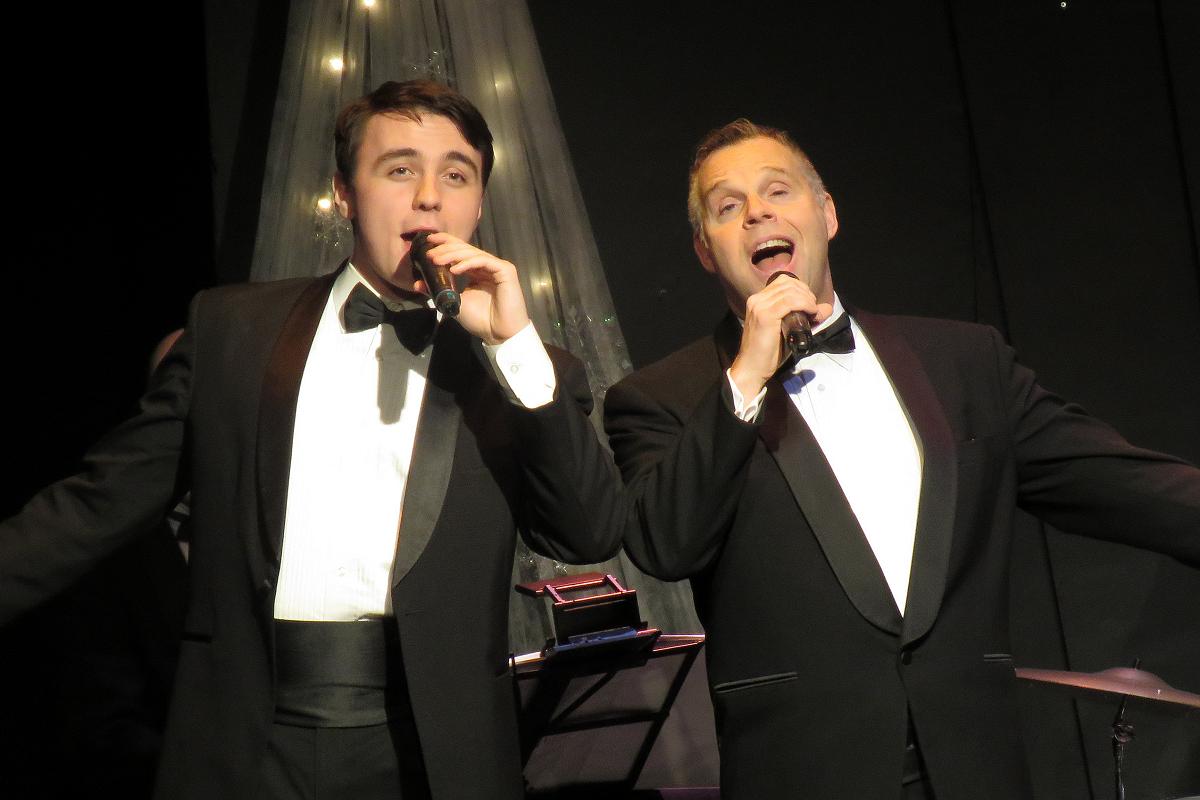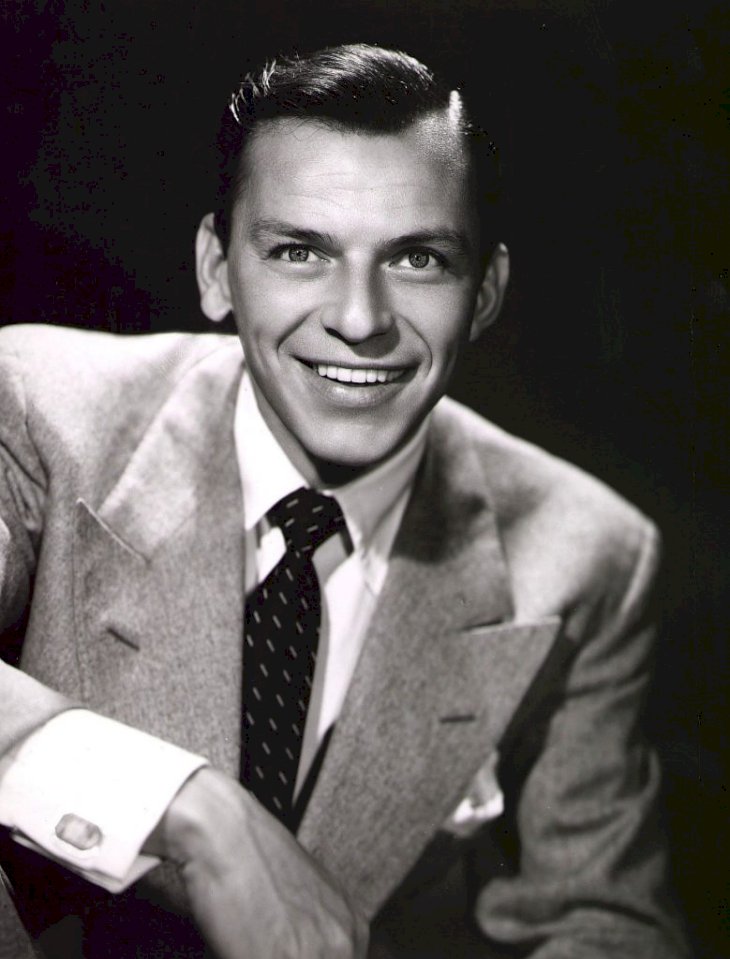Have you ever heard a song that just wraps around you, a voice that feels like a warm, soft blanket on a cool evening? That, you know, very special kind of singing often brings to mind a particular type of performer. We're talking about someone who delivers tunes with a certain grace, making each note feel personal, almost like they're singing just to you. This way of performing, this vocal charm, is what often points us to a specific term.
It's about more than just hitting the right notes; it's about the feeling, the mood, the way the sound travels from the performer to your ears. This style of singing, which is rather unique, has a history and a very distinct character. It makes you feel something, perhaps a little bit of longing or a gentle happiness, depending on the tune. You might find yourself swaying a little, or just closing your eyes to take it all in, actually.
So, what exactly is this kind of singer called? What makes their vocal delivery so recognizable? We're going to explore the meaning of this word, looking at how it sounds, what kind of songs these performers sing, and even how technology helped shape their art. It's a look at a specific kind of musical person, and what makes them stand out, in a way.
- Cristiano Ronaldo On Kobe Death
- Short Message To My Grandchildren
- What Happened To Betsy Woodruff Swan
- Baby French Girl Names Meaning Blue
- Snore Nasal Clip
Table of Contents
- What is a Crooner Definition?
- How Does a Crooner's Voice Sound? Understanding the Crooner Definition
- What Kinds of Songs Fit the Crooner Definition?
- The Technology Behind the Crooner Definition
- When Were Crooners Most Popular? A Look at the Crooner Definition's Heyday
- Famous Names and the Crooner Definition
- Using the Crooner Definition in Everyday Talk
What is a Crooner Definition?
A crooner, to put it simply, is a singer. More often than not, this word describes a man who sings. The kind of songs they usually perform are what we call "jazz standards" or other popular tunes. The way they sing is what truly sets them apart, you know, making them quite special. It's not just about the notes; it's about the way the voice is used, the feeling it carries, and the close connection it makes with the listener, basically.
The core of the crooner definition points to a singing style that feels soft and, in some respects, quite sentimental. These are performers who sing in a manner that's often described as smooth and very intimate. Think of a voice that flows like a gentle stream, without any harsh edges or sudden shifts. It's a delivery that invites you in, making you feel like you're part of the song's story, just a little. They tend to make popular songs their own, giving them a distinct vocal character.
It's interesting to think about how this kind of singing came to be known by this particular word. The term "crooner" itself refers primarily to this very specific style of vocal delivery. This means it's not just about who is singing, but how they are singing. It's about a voice that is evenly modulated, which means it keeps a steady, pleasant quality throughout the song, yet it might have a slightly exaggerated manner, adding a touch of drama or flair to the performance, you see. This balance of softness and a touch of dramatic expression is a hallmark of the crooner definition.
- Single Black Crow Meaning
- Happy Birthday My Love Msg
- Anime For Gays
- Milo Manheim Young
- Video Of Fan Falling
How Does a Crooner's Voice Sound? Understanding the Crooner Definition
When we talk about how a crooner's voice sounds, we're really getting into the heart of the crooner definition. The most common description is "softly." Imagine a voice that doesn't need to shout or strain to be heard. Instead, it seems to float, almost like a whisper that carries emotion. This softness is a deliberate choice, a way of creating a very close feeling between the singer and the person listening. It's like they're sharing a secret, or telling a very personal story, in a way.
Beyond just being soft, the voice is often called "smooth." This suggests a lack of roughness or breaks in the sound. The notes connect seamlessly, creating a flow that feels effortless and pleasant to the ear. There's a certain polish to the sound, a refined quality that makes it easy to listen to for long periods. This smooth delivery is a key part of what makes a crooner's voice so recognizable, too.
Another important aspect of the crooner definition is the "sentimental style." This means the singer pours feeling into the words, often emotions like love, longing, or tenderness. The voice carries these feelings, making the listener connect with the song's message on a deeper level. It's not just singing words; it's singing feelings. This emotional connection is often what people remember most about a crooner's performance. You might even say it's what makes their music stick with you, you know, for a long time.
The way a crooner's voice is "evenly modulated" means that the volume and tone stay consistent, creating a very balanced sound. It's not a roller coaster of loud and soft, but a steady, pleasing presence. However, there can be a "slightly exaggerated manner" in their delivery. This isn't about being over-the-top, but about adding a touch of dramatic emphasis to certain words or phrases, giving them a little more weight. It's a subtle flourish that adds to the performance's charm, making it, perhaps, a bit more memorable, you see.
So, when you hear a voice that is soft, smooth, full of feeling, and delivered with a controlled yet expressive touch, you are likely hearing someone who fits the crooner definition. It's a voice that invites you in, makes you feel comfortable, and tells a story with every note. That, in essence, is the sound of a crooner, basically.
What Kinds of Songs Fit the Crooner Definition?
When we think about the songs that truly fit the crooner definition, we often picture certain types of tunes. These singers are very well known for performing "jazz standards." These are classic songs from the jazz world that have stood the test of time, often with beautiful melodies and thoughtful lyrics. A crooner takes these standards and gives them their unique vocal interpretation, making them feel fresh and personal, you know, every time they sing them.
Beyond jazz, crooners are also very much associated with "popular songs." This means tunes that were widely enjoyed by many people during their time. These could be songs from musicals, films, or just hit singles that captured the public's imagination. The crooner's ability to take a popular tune and infuse it with their smooth, sentimental style is what often made these songs even more beloved, in a way.
A significant part of the crooner definition also connects them strongly with "love songs." Specifically, the love songs that were popular during the 1930s and 1940s. These were often romantic ballads, tunes about affection, heartbreak, or yearning. The crooner's soft, intimate vocal delivery was perfectly suited for these kinds of songs, allowing them to convey deep emotion without needing to be loud or forceful. They could sing about love in a way that felt very personal and deeply felt, too.
So, whether it's a timeless jazz piece, a popular hit from a bygone era, or a classic love song, the crooner brings a consistent vocal approach. Their style allows these songs to be presented in a way that is both polished and deeply moving. The choice of song often complements their vocal abilities, creating a complete artistic package. It's almost as if the songs were made for their voices, and their voices were made for these songs, you see, creating a perfect match.
The Technology Behind the Crooner Definition
It's quite interesting to consider how something as technical as a microphone played a big part in shaping the crooner definition. Before the widespread use of improved microphones, singers had to project their voices loudly to be heard in large halls or over orchestras. This meant a lot of belting and powerful singing, which is a very different style, actually.
However, as microphone technology got better, it changed what singers could do. These new microphones were able to pick up "quieter sounds." This meant a singer didn't have to strain their voice to be heard. They could sing softly, almost intimately, and still have their voice reach every corner of the room or be clearly recorded. This ability to sing quietly, yet still be heard, was a huge shift in vocal performance, you know.
The improved microphones also picked up a "wider range" of sounds. This allowed for more subtle vocal nuances to be captured. The slight variations in tone, the gentle breath before a phrase, the delicate vibrato – all these details could now be heard. This meant singers could use their voices with much more finesse and control, adding layers of emotion and texture that were previously lost. This technological advancement directly enabled the smooth, soft, and intimate vocal delivery that is central to the crooner definition, basically.
So, in a way, the crooner style was made possible by these better microphones. They allowed singers to move away from purely powerful, loud singing and explore a more delicate, personal approach. This shift in technology gave birth to a whole new way of performing, which then became the hallmark of the crooner. It's a clear example of how technical improvements can shape artistic expression, you see, leading to entirely new forms of art.
When Were Crooners Most Popular? A Look at the Crooner Definition's Heyday
The period when crooners really captured the hearts of many people spans a specific time in history. The crooning style, and the artists who embodied it, were especially popular from the "late 1920s until the early 1950s." This was a significant stretch of time, covering several decades where this particular vocal approach was at the forefront of popular music, you know.
During these years, the musical landscape was changing, and radio was becoming a very important part of daily life. People would gather around their radios to listen to music, news, and stories. The intimate, soft vocal style of the crooner was perfectly suited for this new medium. A voice that sounded like it was right there in your living room, singing just to you, created a powerful connection with listeners, too.
The 1930s and 1940s, in particular, were prime years for the crooner definition. This was a time when many of the classic love songs that crooners are known for were written and performed. The sentimentality and gentle delivery resonated with audiences, providing comfort and romance during times that were, for many, quite challenging. The music offered an escape, a moment of beauty and feeling, basically.
By the early 1950s, musical tastes began to shift, with new styles like rock and roll starting to gain popularity. While the crooning style continued to be appreciated and many crooners remained beloved figures, the era of their absolute dominance began to wane. However, the influence of these singers and their distinct vocal approach left a lasting mark on popular music. Their "heyday" might have passed, but their legacy, in a way, continues to be felt and heard, you see, in music that came after them.
Famous Names and the Crooner Definition
When we talk about the crooner definition, certain names almost immediately come to mind. These are the artists who truly defined the style and became household figures because of their unique vocal abilities. My text mentions a couple of very well-known examples: "Frank Sinatra and Tommy Dorsey." These are two giants of the era who absolutely embody what it means to be a crooner, you know.
Frank Sinatra, often called "Ol' Blue Eyes," is perhaps the most famous crooner of all time. His voice was the epitome of smooth and intimate. He had an incredible ability to convey emotion with just a slight shift in his tone or a subtle phrasing of a lyric. Listening to him sing was like listening to a master storyteller, where every word carried weight and feeling. His influence on popular music and the crooning style is immense, and his songs are still loved by many people today, too.
Tommy Dorsey, while primarily known as a bandleader and trombonist, also had a significant connection to the crooner definition. His orchestra featured many popular singers, including a young Frank Sinatra, who got his start singing with Dorsey's band. While Dorsey himself wasn't a crooner in the vocal sense, his band provided the perfect musical backdrop for the crooning style, allowing singers to showcase their soft, smooth delivery against rich orchestral arrangements. This collaboration between bandleaders and crooners was a common feature of the era, you see, shaping the sound of popular music.
These examples help to paint a clearer picture of what the crooner definition looks like in practice. They show that it's about a singer, often male, who sings popular music with a style that is smooth, soft, and very intimate. Their performances were characterized by a vocal delivery that drew listeners in, creating a personal and emotional connection. These artists, and others like them, set the standard for what a crooner could be, basically, leaving a lasting impression on the world of song.
Using the Crooner Definition in Everyday Talk
Knowing the crooner definition helps us use the word correctly in our daily conversations. It's a term that carries a specific meaning, and when you use it, you're usually referring to a particular kind of singer and their style. For example, my text gives us a very simple yet clear illustration: "My mom likes to listen to old crooners like Frank Sinatra and Tommy Dorsey." This sentence perfectly shows how the word is used to describe these specific artists, you know, and their musical output.
When you say someone is a "crooner," you're not just saying they are a singer. You're implying a whole set of characteristics about their voice and their performance. You're suggesting that their voice is likely soft, smooth, perhaps a little sentimental. You're hinting that they might sing classic popular songs or jazz standards, possibly love songs from an earlier time. It's a descriptive word that packs a lot of information into just a few syllables, too.
The word "crooner" can also be used to describe the act of singing in that particular style. For instance, if someone is "crooning," they are singing softly or in a sentimental way. It's about the manner of the singing, not just the fact that someone is singing. This flexibility in usage allows us to talk about both the performer and the performance itself, in a way.
So, whether you're talking about a famous artist from the past, describing a modern singer who adopts a similar style, or simply referring to the act of singing softly and sentimentally, the crooner definition provides a very useful word. It helps us to communicate precisely about a distinct and cherished part of musical history and performance. It's a word that evokes a certain feeling, a certain sound, and a certain kind of artistry, you see, all wrapped up together.
- Natalie Dyer Age
- Jill Wagner Movies
- Tracy Morgan Dead
- Filipowski Height
- Jace Norman Henry Danger Now



Detail Author:
- Name : Prof. Javonte Sauer
- Username : stark.flavie
- Email : vance02@miller.com
- Birthdate : 1972-03-21
- Address : 25731 Mckayla Vista Apt. 617 Lakinborough, MN 68504
- Phone : +1-850-857-0565
- Company : Ferry Ltd
- Job : Meter Mechanic
- Bio : Sit eum odit amet est ex eligendi similique vero. Est in sint aspernatur inventore. Qui est beatae quod rerum est fugit.
Socials
tiktok:
- url : https://tiktok.com/@fae6624
- username : fae6624
- bio : Voluptas quia harum dolores sunt. Iste id nostrum alias ut eveniet.
- followers : 6403
- following : 1170
facebook:
- url : https://facebook.com/fae_dickens
- username : fae_dickens
- bio : Quia nemo excepturi nulla dignissimos in. Dolores quaerat et non corrupti et.
- followers : 1054
- following : 1151
twitter:
- url : https://twitter.com/dickensf
- username : dickensf
- bio : Libero voluptates esse omnis nemo debitis quos. Quam aperiam officia tenetur iusto at ut qui harum.
- followers : 3056
- following : 2122
